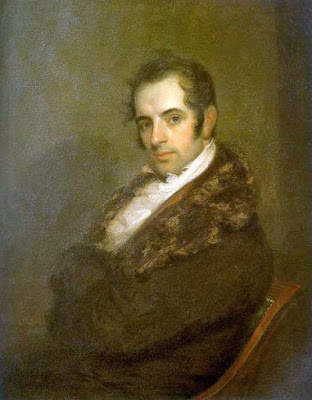Week 3 Vocabulary
jingoistic
implacable
affinity
coquette
harangue
Reminders:
10:00 presentations: Catherine, Susanne
12:15 presentations: Nick, Moultrie, David
Bradbury Essay Corrections
Make the required corrections for your in-class essays on a separate sheet of paper. Label the page: Corrections for Bradbury Essays. You
only have to correct the parts that have codes listed. Read the directions carefully on the Essay Code Corrections. You DO NOT have to rewrite the essays. If you are not sure about a code or comment, feel free to email mail, and I'll try to help.
Remember, lots of marks/comments do not necessarily indicate that your essay is either "bad" or "good"--it's more just me trying to give helpful feedback.
I'm always pulling for you to do your best and look forward to watching you grow in your writing, but I have to make comments in order for you to grow. : )
Notes: Bring your big literature book to class next week. Take time to organize your notebook for our notebook check.
Also,
please read my earlier post which contains details about the Thomas Wolfe Student Writing Contest. Consider participating, so you can check "enter a local writing contest" off your bucket list. ; )
This Week--Explorers and Encounters
Unit I
Read pp. 56-57 in your text,
The American Experience, and define the following terms
in your Literary Terms section of your notes:
Narrative accounts--
Firsthand account--
Secondhand account--
Write down the 5 types of narrative accounts mentioned on the chart on p. 57. Make sure you understand the basics of each type.
Read p. 58 and write a short list of highlights from Columbus' life.
Read the snippet and click on this
Columbus manuscript from 1493. (I think it's good to see and remember how old and ragged these documents are---a privilege to have these fragments from our past.)
Read the following entries from
Christopher Columbus' journal:
Sunday, October 7th through Wednesday, October 17th (pp.106-122)
Enjoy this first-person account of Columbus' first encounter with the "new" world. For this reading answer the following questions:
1. What were some of the signs and clues that told Columbus land was near?
2. Describe the attitude of the crew on October 10th. How did Columbus respond?
3. After reading the entries from October 12th-15th, answer the following questions:
A. Describe Columbus' first landing. In what manner did he arrive on shore?
B. What were some of Columbus' impressions of the natives?
C. What were some of his impressions of the land and resources?
D. Describe some of his interactions with the natives.
E. What is bizarre to you about his comments or perspective? How is it different than our own?
Unit II
In your text,
The American Experience, read p. 40 and write a brief bio with bullet points for:
Alvar Nunez Cabeza de Vaca
Garcia Lopez de Caredenas
For those of you who enjoy Jon Krakauer's works (
Into Thin Air, etc.), think about how Cabeza de Vaca's adventures compare. How were their motives different? similar? Were de Vaca's experiences as extreme? more so?
Be sure to look at the map of his route.
Read pp. 42-46 including the background blurb on 42.
Watch
this section of Ken Burn's documentary
The West regarding Cabeza de Vaca. (from 19:19 to 26:20)
Then, write a paragraph summarizing their journey, hardships, and encounters with the Indians and others. Be sure to reflect details from both the book excerpt and video.
Unit III
Read and annotate the short story by Thomas Wolfe, "Polyphemus"
By annotate, I mean underline characters, key words, imagery--anything that might help you with your text notes later. Also, circle unfamiliar vocabulary.
After reading the story, complete your
text notes per the sheet we went over in class. This is the only text notes you will have this week. Please label as I directed in class--give good energy to sections 2 and 3 which will require more thought.
Learn more about the explorers Wolfe may have been referencing:
Read this excerpt about the backdrop of this story and connections to explorers.
Read this entry from the North Carolina History Project about the Juan Pardo Expeditions.
Take a few notes on these explorers and familiarize yourself with some of the history of early Carolina exploration.
NEXT WEEK---PURITANS
Thought for the week:
“In wisdom gathered over time I have found that every experience is a form of exploration.” ―Ansel Adams
 |
| Ansel Adams, The Tetons and The Snake River |







































